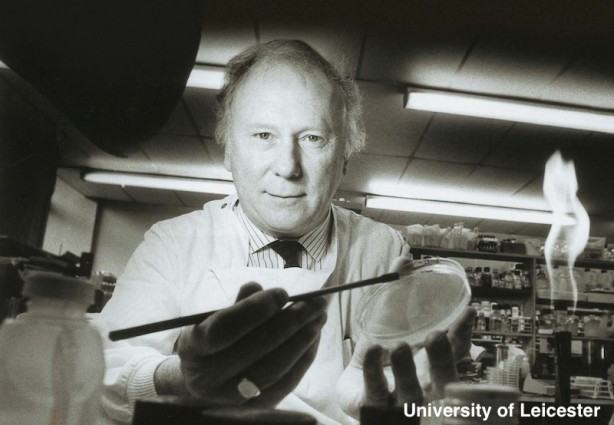Microbiologist Professor Bill Grant from the University of Leicester has had a bug named after him.
An academic journal was printed this month naming a bacterium isolated in Japan after the Leicester scientist.

The International Journal of Systematic and Evolutionary Microbiology has described and named the bug, giving the name etymology as: “Halarchaeum grantii N.L.gen. masc. n. grantii, of Grant, named after the microbiologist William D. Grant for his great contribution to the study of Halobacteria.”
Professor Grant, Emeritus Professor of Environmental Microbiology in the Department of Infection, Immunity and Inflammation, said: “The bug in question is often described as a halobacterium because they are confined to very salty places on earth, although, technically they are not bacteria but a completely genetically different line resembling bacteria called archaea that mostly inhabit extreme environments like very salty lakes and hot springs.
“These are considered to be relatives of the very first life forms that evolved on earth and they have genes that are the ancestors of some genes in present day higher forms of life.
“It is nice to become part of posterity – grantii will be in the literature for ever.”
Professor Grant said friends and colleagues were mildly interested- but ‘hardly ecstatic!’
“It is not unusual to have a bug named after oneself, but not that common,” said Professor Grant.
As an environmental microbiologist, Professor Grant specialises in extreme environments in locations all around the world from Inner Mongolia to various African sites. He is best known for his work on East African soda lake microbiology (including their special halobacteria) but also halobacteria in ancient salt deposits (salt mines, including a couple in the UK) where it looks as if the halobacteria were entombed when the original salt lakes dried out millions of years ago to form the deposit and have been in suspended animation since that time. That work has been of interest to the astrobiologists since Mars has salt deposits that were once ancient lakes.
“I regard this as an accolade from my peers to rank alongside the Lifetime Achievement Award I got from the Society for Extremophile Research in 2012 for much the same reasons.”






